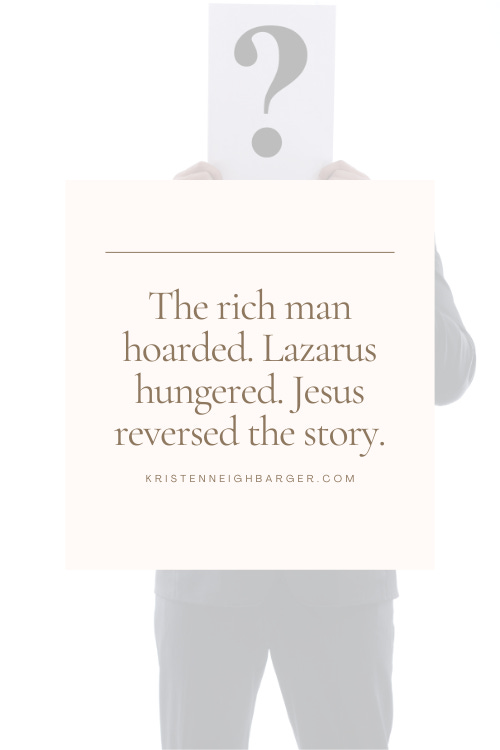
From Queen Bees to Pharisees
My late high school and early college days were filled with those fantastic (yet slightly cheesy) rom-coms.
You probably remember them too (because they’re classics):
10 Things I Hate About You
She’s All That
Never Been Kissed
Can’t Hardly Wait
Mean Girls (slightly after my college years, but still in the same vein)
While I was consistently disgusted by the ultra-popular “Queen Bees” in these movies, I loved cheering on the “geeky” underdogs as they unthroned the Queen.
At the time, I can’t say I really related to the underdog or the Queen Bee. There were definite underdogs in my circles, but not many Queen Bees making their lives miserable.
Except in one place.
The most unlikely place, actually.
In my high school, the social dynamics weren’t ruled by Queen Bees or Mean Girls. But in my faith communities, they reigned supreme.
When Church Hurt Mirrors High School Cliques
I spent years writing to minister to survivors of church hurt, spiritual abuse, and religious trauma. One of the most common things people told me was that they had never experienced church hurt—only to spend the next ten minutes telling me all about the ways the church had wounded them.
It’s fascinating, really.
Many people can’t name their experience as “church hurt,” yet their stories mirror the pain of being excluded, belittled, or bullied—just like those movie underdogs facing Queen Bees.
And I still see it daily:
On social media
In business
Within organizations
In political discussions
In Christian clichés
There’s so much spiritual justification for treating others poorly, it’s heartbreaking.
But this isn’t new. It’s always been a problem in the church.
And Jesus addressed it head-on in Luke 15–16.

Luke 15–16: Setting the Stage
Luke 15 – The religious leaders were furious because “sinners” were listening to and eating with Jesus. In response, Jesus told three parables: the lost sheep, the lost coin, and the prodigal son. These stories weren’t for the “sinners”—they were for the religious elite who were grumbling about who was welcome at the table.
Luke 16:1–13 – Jesus told the parable of the dishonest manager, reminding his disciples to use their wealth for kingdom purposes. The Pharisees mocked him for it.
Luke 16:14–18 – Jesus called out the Pharisees for twisting the law, hiding behind loopholes, and looking holy on the outside while being corrupt within.
Then, he told the story of the rich man and Lazarus.
The Rich Man and Lazarus: More Than an Afterlife Story
You can read the full parable in Luke 16:19–31. Here’s the short version:
A rich man lived in luxury while a beggar named Lazarus lay at his gate, starving and covered in sores.
Both men died. Lazarus was carried by angels to Abraham’s side. The rich man ended up in torment, looking across a chasm he could no longer cross.
Abraham reminded the rich man that he had lived in comfort while Lazarus had suffered. The great reversal was now complete.
Growing up, I almost always heard this parable used as a picture of heaven and hell. Rich men can’t go to heaven. Lazarus represents the poor who suffer now but will have comfort later.
But that’s…well, an adventure in missing the point.
Scholars like N. T. Wright and Craig Keener point out that this parable isn’t a speculative map of the afterlife. It’s a prophetic warning to the religious elite. In both the context of Luke’s gospel and Jesus’ culture, the message is clear: their love of wealth and blindness to the poor would lead to reversal and judgment.

The Kingdom of Reversal
This parable fits perfectly with Jesus’ other teachings in Luke:
Luke 6:20, 24 – “Blessed are you who are poor… but woe to you who are rich.”
Luke 13:30 – “The first will be last, and the last will be first.”
Luke 11:43; 16:14; 20:46–47 – The Pharisees love honor, wealth, and control—but they’re missing the kingdom of God right in front of them.
The message? God’s kingdom flips the social order. Those who are overlooked, excluded, or silenced are the very ones Jesus names and honors.
A Seat at the Table for the Overlooked
For many of us, exclusion hasn’t come from high school cliques but from faith communities themselves. Maybe you’ve been looked down on, denied a seat at the table, or treated as “less spiritual.”
That makes you Lazarus in this story—pushed aside by the elite, but not ignored by Jesus.
The good news is this: Jesus sees you. He calls you by name. He reverses the roles.
This parable isn’t a warning to Lazarus to “do better” or “prove his worth.” It’s a warning to the religious leaders who hoard status, wealth, and theology to keep others out.
The kingdom of God is for the overlooked, the silenced, the misfits, and the wounded. It’s a declaration that God sees you, honors you, and welcomes you to the table—even when the gatekeepers don’t.
Reflection Questions
When you think back on your own faith journey, have you ever felt like Lazarus—pushed outside or ignored by those in power?
How does it change your perspective to realize that Jesus names Lazarus but leaves the rich man nameless?
In what ways have you seen “Queen Bee” or “Mean Girl” dynamics show up in faith spaces?
How might Jesus’ message of reversal bring healing to your experience of exclusion or hurt?
What does it mean for you personally that God honors and welcomes you to the ta
